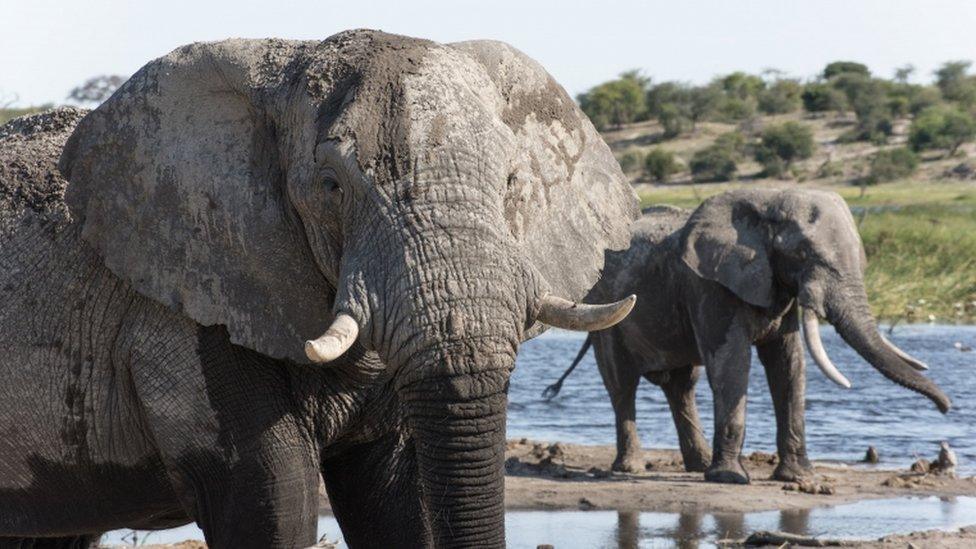Elephant poo: How can it help protect the species?
- Published
- comments

Elephants are known for having an excellent sense of smell!
Elephants are known for having a fantastic sense of smell and new research suggests it comes in handy when they're on the move.
The animals pay close attention to scent trails of dung and urine (yes, that's poo and wee!) left by other elephants, the study suggests.
Researchers looked at popular trails walked by the animals and discovered that wild African savannah elephants - especially those which are travelling alone - sniffed and tracked the trail with their trunks.
The scents act as a "public information resource" according to the researchers from the University of Exeter and Elephants for Africa, and it's an important tool which helps the animals know which direction they need to travel in.
"Our findings suggest an important role of an elephant's sense of smell in long-distance navigation," said Connie Allen of Exeter's Centre for Research in Animal Behaviour who is a lead author on the study.
"As elephants follow these trails, they deposit their own urine and dung, which reinforces the pathway's presence for future elephants."
Elephants on the move pay close attention to scent trails of dung and urine left by other elephants
The researchers believe elephants' special way of working out where they need to go doesn't only help them reach their next destination, but it can also divert them away from farms and villages, where conflict with humans can cause devastation to communities.
They're now looking to carry out more research to find out whether humans can create artificial elephant trails to keep the mammals away from environments where humans live and to also improve the quality of routes connecting elephant populations between protected areas.
Elephants have more scent receptors than any other mammal
An elephant can smell water up to 12 miles away
An elephant's trunk is able to sense the size, shape and temperature of an object
An elephant trunk contains 40,000 different muscles. The human body only has 639!
"We see great potential for these findings to be applied to elephant management and conservation - primarily as a method for manipulating elephant movements," Connie said.
"We carried out this study in Botswana, where the main threat to elephants is conflict with humans.
"By removing the existing scent paths that lead elephants to close contact with humans in problem areas, and redirecting them, perhaps we could reduce such conflicts happening."
Researchers believe the findings could help them keep elephants away from human populations
Current efforts in Botswana to reconnect elephants with populations across southern Africa could also be helped using the proposed technique.
The study, which examined a largely male population, found urine deposits from adult elephants were more likely to attract attention than those of younger males.
The researchers believe this could mean African elephants are able to work out the age and maturity of the other elephants they can expect to encounter from these cues - how clever is that!
- Published12 August 2023
- Published31 March 2020
- Published29 November 2020
